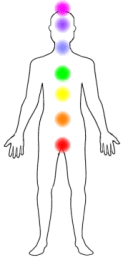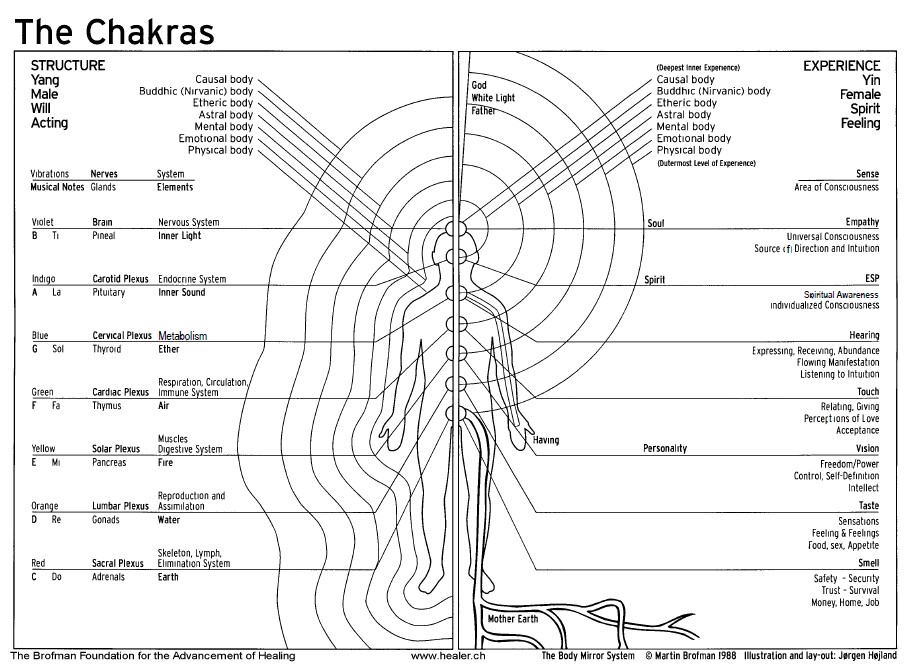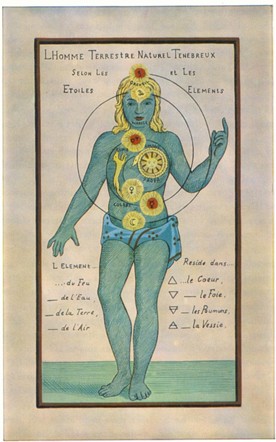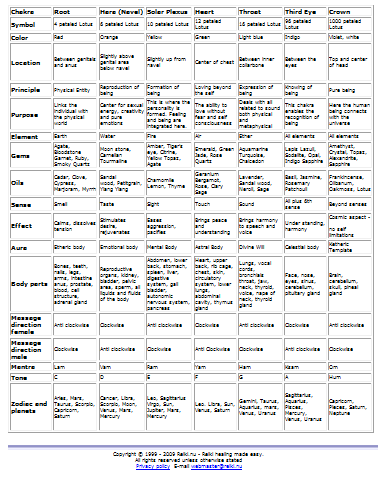I am going to write this in the style of a public talk as the connections are clear to me, no need to explore in writing.
So let's begin with the 4 NT from Ajaan Sumedho:-

The Noble Truth of Suffering, - Dukkha

The Noble Truth of the Origin of Suffering - Samudaya

The Noble Truth of the Cessation of Suffering - Nirodha

The Noble Truth of the Way Leading to the Cessation of Suffering – Magga
There's a bit of Pali so I must know what I'm talking about.

OK, that’s a joke. I am not a scholar or an authority, I am just an individual presenting a viewpoint. Whilst I might be vehement I only want you to accept anything said if you agree - not because I am on the platform.
I interpret the 4NT as there being suffering out there, and I too can suffer if I attach to desires for this suffering. But I don't have to if I follow the 8-Fold Path. The words of the 8-Fold Path I use are:-

Right Understanding

Right Intention

Right Speech

Right Action

Right Livelihood

Right Determination

Right Mindfulness

Right Concentration
I often use the word sila, which I think of as moral integrity, and Ajaan Chah sees sila as Right Speech, Action, and Livelihood.
As Buddhists we recognise in us desires, and we deal with these desires in a certain way. One way, from
Bhante on beautiful desire, is that when desire arises we cultivate it when it is wholesome and abandon it when it is unwholesome. Now desire is a function of the object so a desire arises as a result of perceiving an object in the world of dukkha. Can we accept this as right understanding? Can we agree with this?
Now how do we discern between what is wholesome and unwholesome? Is this not a moral decision? So here is where sila comes in. Based on our own moral integrity don't we decide what is wholesome and unwholesome?
At the same time when the desire arises, we might know whether it is wholesome or not, but do we abandon or cultivate it? Nature has given us mindfulness to deal with this. So whether we attach to an unwholesome desire depends on applying our mindfulness. Can we accept this as right understanding?
Sila and mindfulness are the tools which I want to consider now. As Buddhists there tends to be a cut-off point as to what we consider with regards to desire in this world of dukkha. Lust is one we usually consider, greed another, are there others?

We have sila to deal with lust, sila is very important and sadly something that can be lacking in our upbringings. To live without sila is not following the Buddhist Path. So let us consider greed. Clearly the Buddha advises against hoarding possessions, so Buddhists must come to terms with that. But as Buddhists we should be mindful of where these possessions come from. When we buy our computers where do they come from? When we buy our clothes where do they come from? Surely as Buddhist shouldn’t we be mindful of this?
Let us consider some forms of consumer actions. What about food? We all need to eat food so let us be mindful of our eating habits. Many Buddhists are vegetarian even though that ironically is difficult in Thailand. So we are mindful of not killing, so being vegetarian or not could be considered wholesome and not unwholesome. Is being vegetarian always wholesome? What about excessive consumption of dairy products? Here is a
detailed discussion of milk, I will just say that minerals from sesame or whole foods is a better way of strengthening bones. Cheese and milk also produce excessive mucus, and this is not healthy. And this brings me to the real question of food, why do we eat it? To give our bodies nutrition, is that not the case?


Let me rephrase, if we were being mindful then wouldn't we eat nutritious food? Why as mindful beings would we eat foods that were not nutritious? Don't we need healthy bodies if we are to follow the Path? So being mindful when eating food is synonymous with healthy eating, and I am going to classify that as a wholesome desire, to eat healthy food? Please ignore the practical problems for the moment, isn't eating healthy food mindful - a wholesome desire? As Buddhists can't we talk of impractical things like mindfulness?
Now there is much discussion of what is healthy food, but it is generally accepted that whole grains, vegetables, fruit and legumes are healthy. So if we go to the market and buy these, this could reasonably be considered a wholesome action? A desire for whole grains, vegetables, fruit and legumes could be considered a wholesome desire?
But what if we go to the supermarket and buy these foods in a can. In the processing what are Nature's foods have preservatives added, and there is much concern as to the damage these additives do to our health. Is it mindful to eat unhealthy food? Would it be reasonable to consider mindful eating as consuming unprocessed foods, and processed foods as unwholesome?
Foods you buy at the market often have been grown using pesticides. The purpose of a pesticide is to kill life. Is it mindful then to use pesticides? Any foods grown with pesticides become tainted, is it healthy to eat foods grown with pesticides? So it would be mindful to eat organic food? Wouldn't it be a wholesome desire to want organic food?
There are vegetarians here, this is not easy, there are few vegetarian restaurants. We pile over to Silom to have cheap and good vegetarian food, but it is not readily available. Why? The usual answer is that people don't want it, but is that the case? Would people eat more vegetarian food if it was readily available? Let's say a vegetarian stall next to every wat?
It is very difficult to buy organic vegetables in Thailand. I live in the country and have some sources but if I want a variety of veg I order from Bangkok. Brown rice is usually available in supermarkets but if I want organic brown rice I order it - again via Bangkok. Why are these products not easily available? The usual answer is that they are too expensive, but let us look at the real costs. What do we eat food for? To feed our bodies. If we feed our bodies with unhealthy foods such as excessive refined sugar, what is the result? Illness, and we have to pay when we are ill. So when we examine the costs of food, we should consider the cost of illness as part of our costs. Whenever I consider my food I consider it as part of my health, and so the cost of my health is my food, medical insurance (don't have any) and medical bills (limited doctor and no hospital bills). Paying extra for healthy food is cost-effective.
So mindful eating would include organic veg and fruit as well as whole grains and legumes; if the issue is not cost, what is it? We could begin by buying local, otherwise we rely on supermarkets and corporate distribution. The corporations are not interested in promoting organic eating as their profits are made in processed goods. Their marketing emphasises processed goods, they distribute and sell processed goods. Healthy eating will reduce their market share. You might argue, supply and demand would alter the distribution policies of the corporations, but a lifestyle change would affect their profits and healthy eating is such a change. Corporate policies are not going to encourage healthy eating, but if we are mindful about our eating then don't we need to consider how we consume?
Let us also consider where we buy. It is more likely that if we buy locally, not only will we get healthier food but the profits are more likely to go into peoples'' pockets, the profits at the supermarkets will go to the corporations. Is this an issue we should be concerned about as Buddhists? Whether local people get the profits or whether corporations get the profits? If we buy in Thailand isn't it better that the money stays in Thailand?
I have used food because it is something we all have to buy. Wouldn't a mindful consumer choose to buy local-grown healthy food, isn’t this a wholesome desire? What happens when we start to consider other purchase, how would we consume mindfully?
Group Exercise:-
Ask people to call out different types of expenditure. Health, fashion, investment, motors, property, electronics, toys, pensions. Alternative energy?
Split into groups one person to report back, one to scribe. What desires are connected with consuming these items? Are they wholesome or not? Are there lifestyle choices involved in the marketing of these goods? Should we be mindful of these choices? Can the unwholesome desires be abandoned? Easily? Are there any moral implications in our consumer choices?
Conclusion
We do not in general consider our consumer practices in the light of sila and mindfulness, is there any Buddhist reason for not doing so? Kammically we are responsible for our actions, and if we are aware of the consequences of the profits from our consumption then isn't it mindful to alter our actions, our consumer practices?
Perhaps more political conclusions could be drawn as a result of the workshop, whilst they are obvious to me they might not be to others and as such they must make the decision.
Are there correspondences between local and wholesome and corporate and unwholesome?
If people are aware of the availability issue, maybe a mindful consumer network could be mooted?





 And Tshepo was a great dog, My favourite story is the one where he saved my drunk neighbour who regularly came home late and a tsotsi spotted his timing, Tshepo stepped in and chased the tsotsi off. Unfortunately the story with Tshepo ended sadly. The guy who took over my house didn't have the sense to know the advantage of a good guard dog. Eventually I bullied him into keeping the dog, and later heard that the dog found a girlfriend and had puppies. I suspect he became a street dog and was shot. I remember the heart-rending scenes the day I left where Tshepo was sat on the other side of the road staring at me - sat with his temptress. I eventually coaxed him over to say goodbye and chain him up, but it was sad. Just thinking about this makes me realise why I resist having dogs - and then there was the way my mother was with her dog - they are a big responsibility.
And Tshepo was a great dog, My favourite story is the one where he saved my drunk neighbour who regularly came home late and a tsotsi spotted his timing, Tshepo stepped in and chased the tsotsi off. Unfortunately the story with Tshepo ended sadly. The guy who took over my house didn't have the sense to know the advantage of a good guard dog. Eventually I bullied him into keeping the dog, and later heard that the dog found a girlfriend and had puppies. I suspect he became a street dog and was shot. I remember the heart-rending scenes the day I left where Tshepo was sat on the other side of the road staring at me - sat with his temptress. I eventually coaxed him over to say goodbye and chain him up, but it was sad. Just thinking about this makes me realise why I resist having dogs - and then there was the way my mother was with her dog - they are a big responsibility.